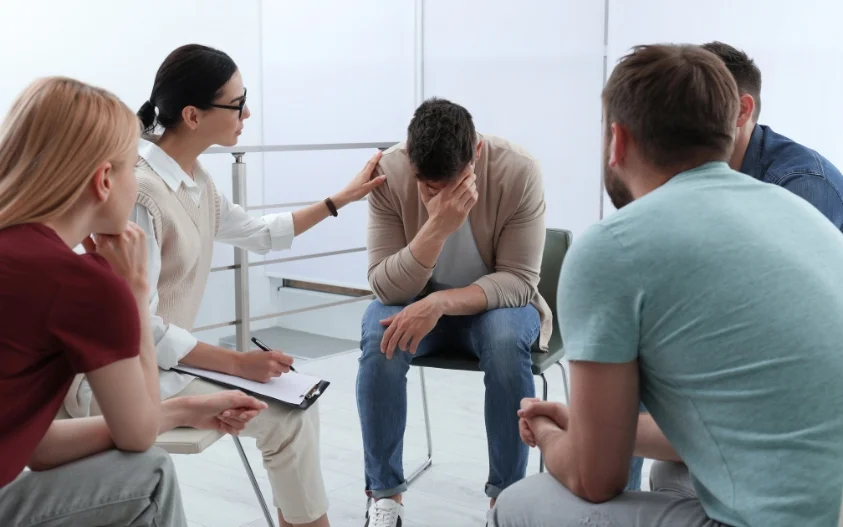24/7 Helpline:
(866) 899-221924/7 Helpline:
(866) 899-2219
Learn more about Prescription drug Rehab centers in Cherokee County
Prescription drug Rehab in Other Counties

Other Insurance Options

Self-pay options

State Farm

Sliding scale payment assistance

Lucent

Multiplan

BlueShield

Choice Care Network

Health Choice

Aetna

Carleon
Beacon

Molina Healthcare

Meritain

Premera

Amerigroup

American Behavioral

UnitedHealth Group

UMR

Access to Recovery (ATR) Voucher

MVP Healthcare

Northeastern Behavioral Health Services
Northeastern Behavioral Health Services is a public rehab located in Tahlequah, Oklahoma. Northeaste...

Creoks Mental Health Services
Creoks Mental Health Services is a private rehab located in Tahlequah, Oklahoma. Creoks Mental Healt...

Cherokee Nation – Behavioral Health Adult Clinic
The Behavioral Health Adult Clinic of Cherokee Nation is a co-occurring addiction treatment center i...















































Redefine U
Redefine U is a private rehab located in Tahlequah, Oklahoma. Redefine U specializes in the treatmen...

People
People Inc. is located in Tahlequah, Oklahoma. People Inc. provides quality community based, habilit...















































